Kokosing Materials Inc. is a Good Neighbor
BY AsphaltPro Staff
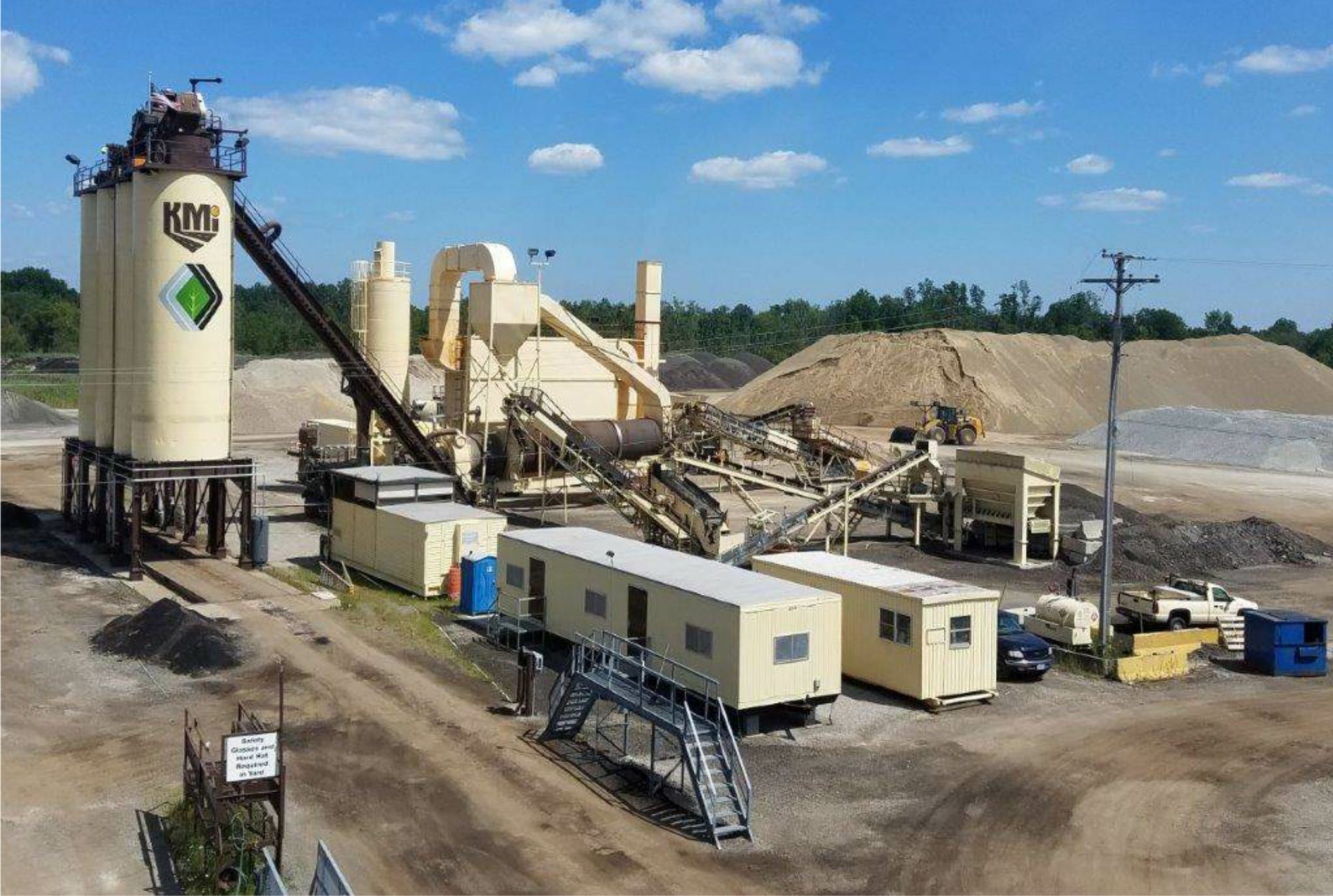
Asphalt Solutions Inc. has patents for its AS Roofing Material and AS Cherry odor suppressants, valid U.S., Canada and international.
Kokosing Materials Inc., Fredericktown, Ohio, has nearly 40 years of experience producing asphalt across its 17 asphalt plants throughout the state. So, the company knows a thing or two about being a good neighbor.
At its Garfield Heights, Columbia Station and Sheffield plants, Kokosing’s Environmental Manager Ralph Kyanko estimates that some homes are only a few hundred yards from the plant. When the company received a few odor complaints back in the early 2000s, they were quick to identify a solution.
“We’re very responsive to any complaints and we always have been,” Kyanko said. If a complaint comes in, they contact the plant in question to find out what might have changed that day. Perhaps something unusual is going on. Perhaps they are making a special mix. They also look into wind direction and speed. Once the cause has been established and a solution identified (where possible), Kokosing calls the individual back to relay the information. Complaints expressed through the local district of the Environmental Protection Agency are addressed in the same manner.
For this particular issue, Kyanko guessed the stronger odor may have been caused by an increased use of recycled asphalt. “We operate within our permit limits everywhere and we do our emissions testing to prove it,” Kyanko said, “but odor isn’t something you test for.”
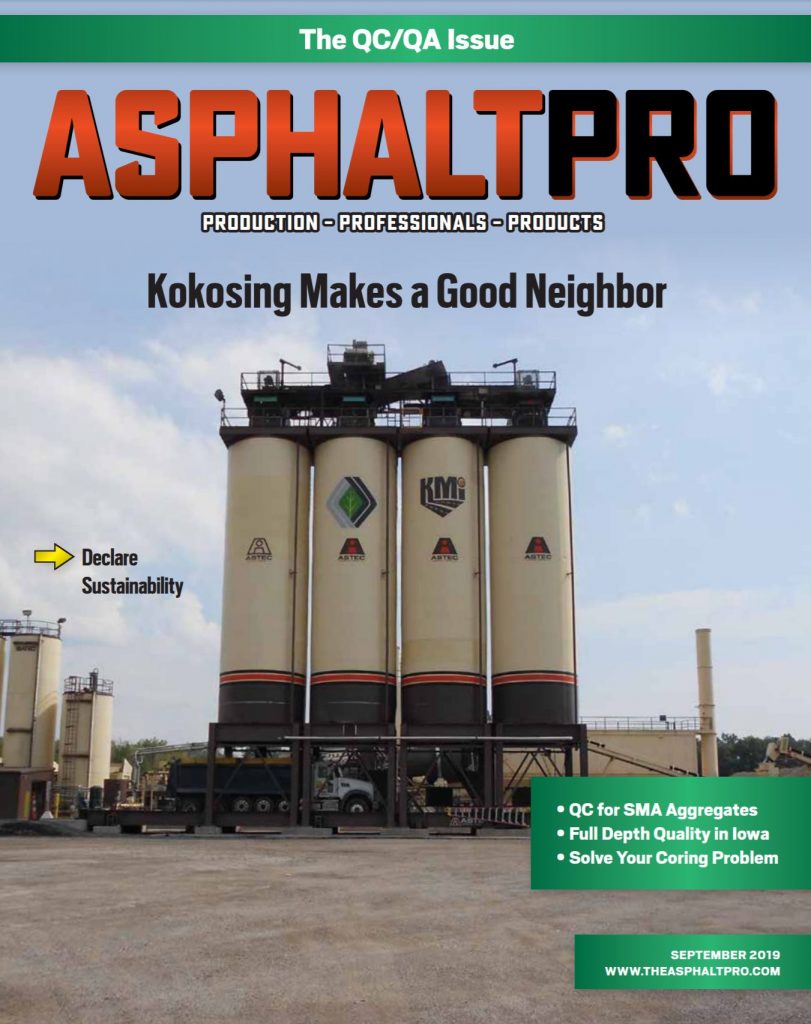 The solution was incorporating an odor suppressant, AS Cherry, from Asphalt Solutions Inc., Cape Coral, Florida, to neutralize odors during asphalt production. Kyanko said he has received fewer odor complaints since adding AS Cherry to its liquid asphalt cement (AC).
The solution was incorporating an odor suppressant, AS Cherry, from Asphalt Solutions Inc., Cape Coral, Florida, to neutralize odors during asphalt production. Kyanko said he has received fewer odor complaints since adding AS Cherry to its liquid asphalt cement (AC).
“No one called back to say it smelled good,” he joked, “but not getting complaints? That’s proof it’s working.”
What Is AS Cherry
AS Cherry is an odor suppressant that encapsulates the light ends within the AC, preventing their evaporation, which causes the odor. Check out AsphaltPro’s article “Store Liquid AC at Proper Temps” for more information about the importance of saving light ends.
Asphalt Solutions’ products were born when the company’s founder, A.J. Ronyak, was working at a plant in the late ’90s. Ronyak had been chewing a piece of Winterfresh-flavored gum and thought it might be worthwhile to put a scent like that in asphalt.
AS Cherry and AS Pine can be used in mixes up to 350 degrees Fahrenheit, while Asphalt Solutions’ AS Roofing Material can be used for mix at any temperature. Both AS Cherry and AS Roof Material are odor suppressants, while AS Pine is an odor masking agent.
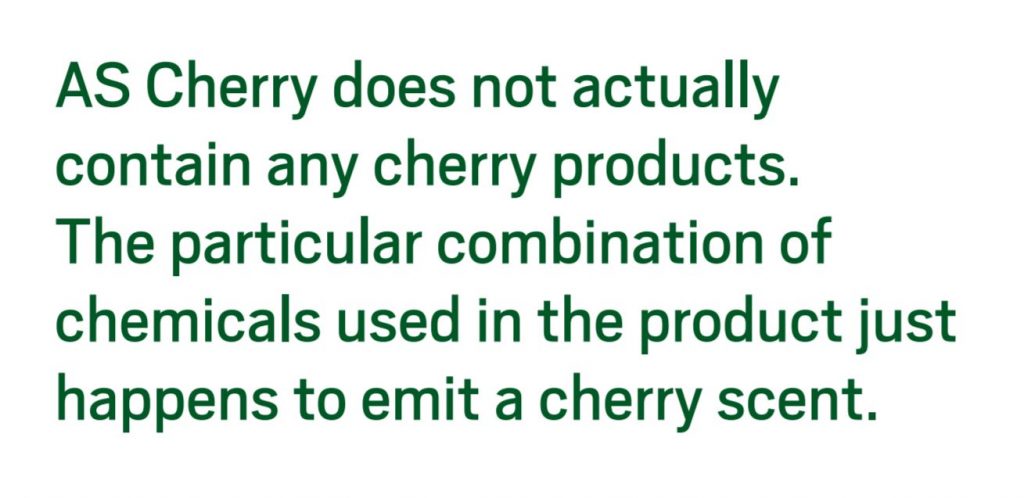
Ronyak recommends starting at one gallon of AS Cherry or AS Pine for every 12,000 gallons of bitumen. Some operations may use less, some may use more, though Ronyak suggests not using more than one gallon per 8,000 gallons of bitumen. When using AS Roofing Material, Ronyak suggests a starting ratio of one gallon of his additive per 10,000 gallons of AC, but no more than one gallon per 6,000 gallons of AC.
The National Center for Asphalt Technology (NCAT) has tested Asphalt Solutions’ products and has found that they do not negatively affect the AC, even at application rates up to 20 times the recommended dosage. However, using too much not only needlessly increases production costs, but it can also make the asphalt actually smell like the additive.
“A good test is to bring people from offsite to the plant and see if they can smell anything,” Ronyak said. “If the answer is no, you have the right ratio.” However, that wasn’t always the case.
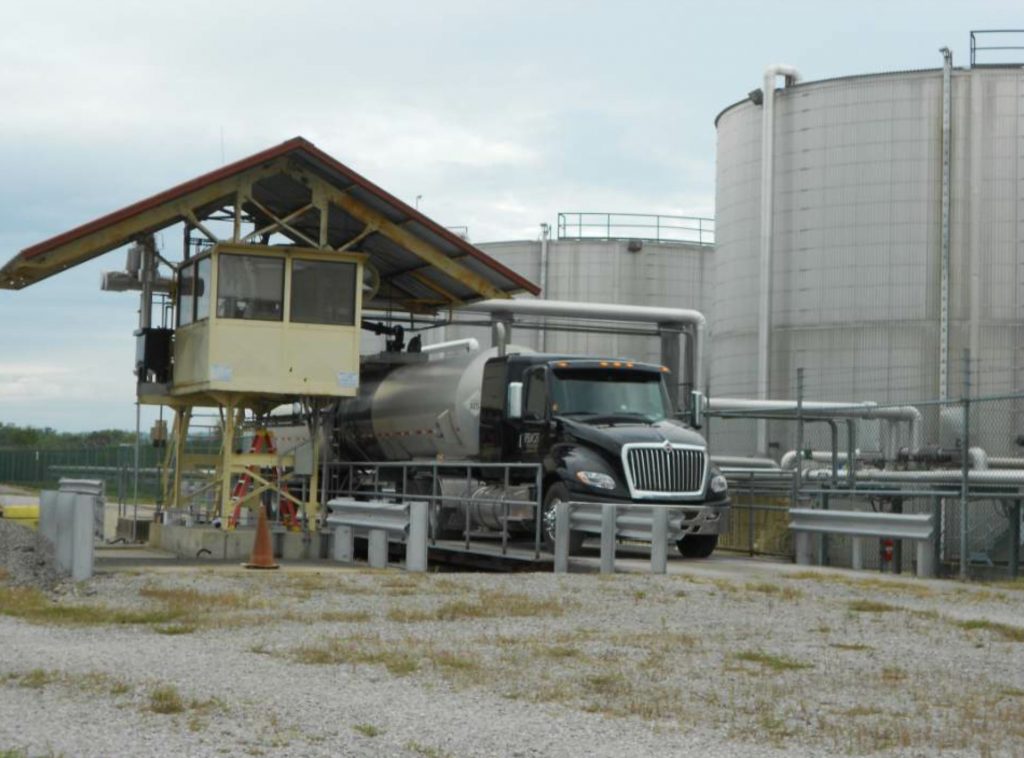
Kokosing has two terminals. One in Wheelersburg, Ohio, the other, in Mansfield, Ohio.
Kyanko remembers the first time Kokosing used AS Cherry in the early 2000s. “I remember going outside of the office and the entire area smelled like a bowl of cherries,” he said. Back then, the company used a parallel flow plant versus the counterflow drums it uses today (mostly double barrel Astec plants). Kyanko said the scent isn’t as noticeable with counterflow drums because the liquid AC is added outside of the drying drum. Kokosing’s tanks also have vapor recovery systems, which could also contribute to a reduction in the cherry smell.
“Back in the day, there was a bit of a learning curve and people were adding a bit more than was necessary and ending up with cherry-scented asphalt,” Ronyak said. “Now, everyone knows roughly how much to add so there’s no smell—and counterflow plants make a big difference.” However, he adds, some customers, particularly those using AS Pine in pine country, tend to increase their dosage a bit to achieve a pine scent.
Despite not smelling as strongly as it once did, Kyanko said AS Cherry still results in a more pleasant smell during asphalt production.
Add Cherry to Asphalt
Kokosing incorporates AS Cherry at its two terminals, located in Mansfield and Wheelersburg, Ohio. Although many AS Cherry customers add the product at their terminals, Kokosing puts the product in its tankers. This makes it possible to use AS Cherry only at Kokosing’s plants with nearby neighbors.
Ronyak said this application method is an ideal way to introduce the additive to the AC, as the tanker itself acts as a mixing unit as it travels between the terminal and the plant.

Kokosing uses two to two and a half quarts (0.625 gallons) of AS Cherry per 6,000 gallons of liquid AC, treating an estimated 300 tanker loads each year. “It’s highly concentrated, so it doesn’t take much,” Kyanko said.
Ronyak said there is no need to approve the use of Asphalt Solutions’ products with environmental agencies, DOTs, etc.
“It doesn’t alter the characteristics of the liquid asphalt at all, other than its odor,” Kyanko said. “Already, that’s such a small amount. Once you’re running the mix, with maybe 4 to 6 percent virgin AC, it becomes an extremely small amount.”
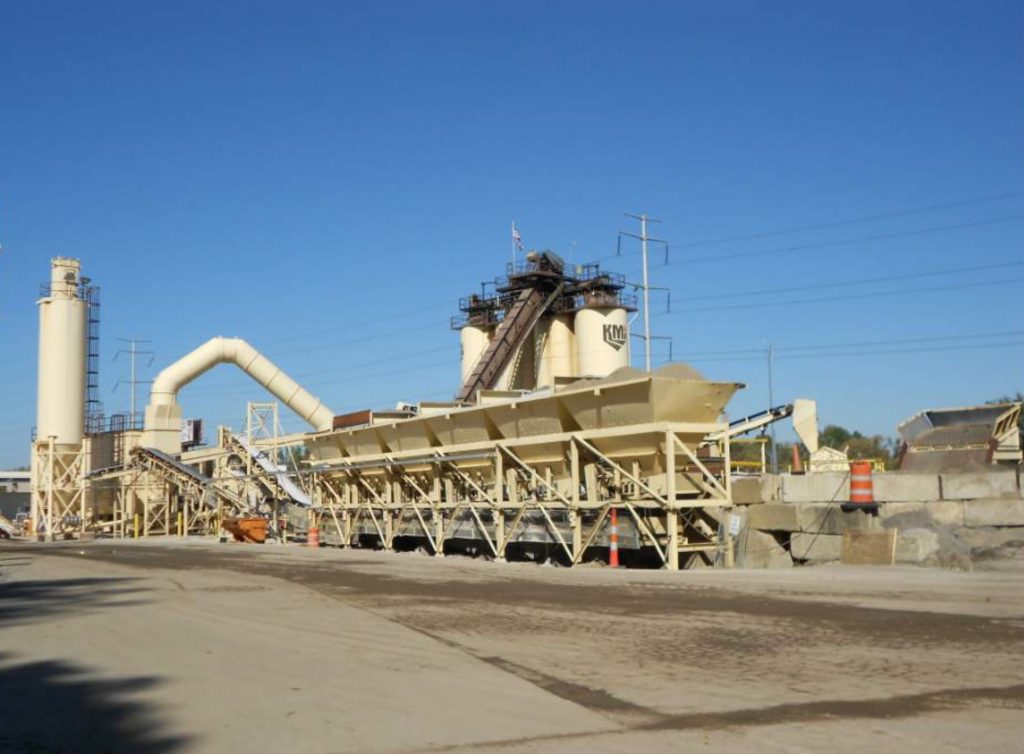
Kokosing operates 17 asphalt plants throughout the state of Ohio.
Kyanko said the use of AS Cherry has also come in handy when producing mix with blast furnace slag, which can improve skid resistance. Use of slag is popular in northern Ohio and is required for surface courses by the Ohio Turnpike and Ohio Department of Transportation’s District 12, which includes the Cleveland area and surrounding counties. However, producing asphalt with slag tends to emit a strong odor due to slag’s high sulfur content.
“AS Cherry doesn’t completely eliminate the sulfur smell, but it does make it better,” Kyanko said.
Kokosing uses AS Cherry, but the product also comes in a pine-scented variety. “We’ve never tried the pine; I guess I just prefer the smell of cherry to pine,” Kyanko joked. “Maybe parts of the country with more pine trees prefer the pine smell.”
Scent, as Kyanko points out, is highly subjective.
“Asphalt smells like money to me, but it may not be the same for everyone.”
